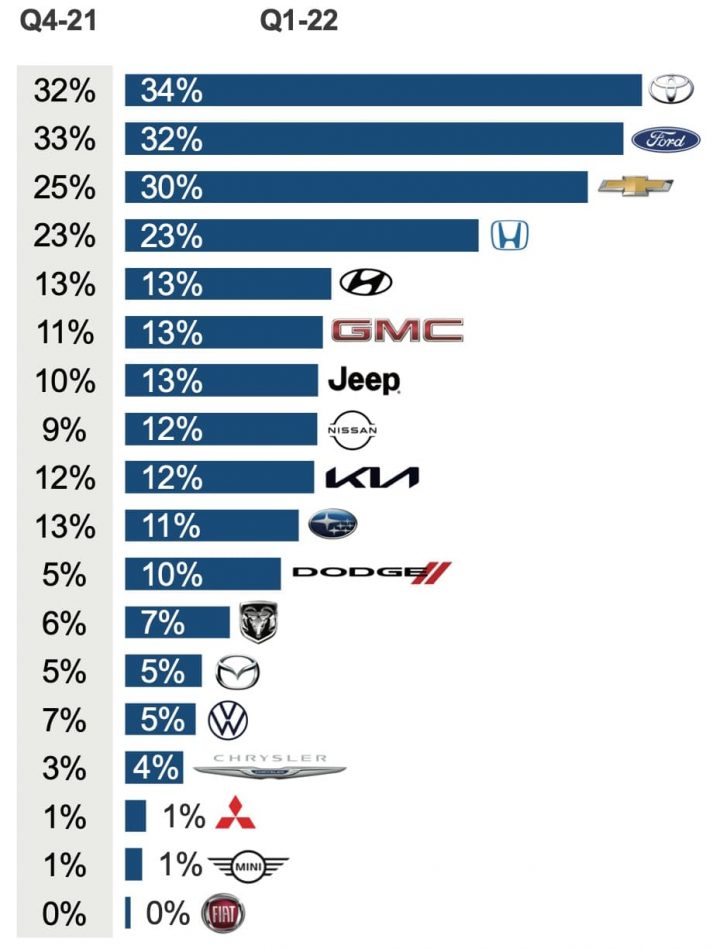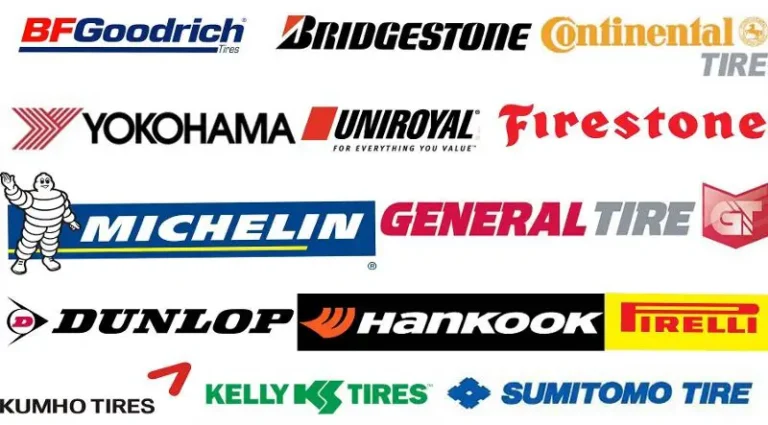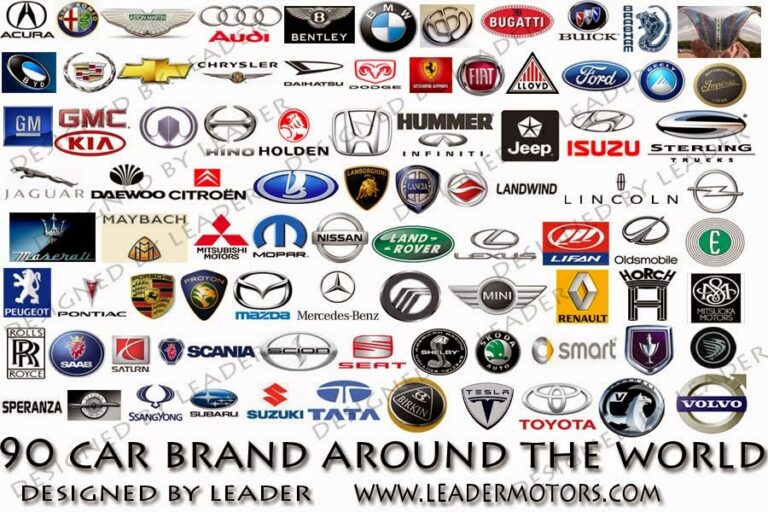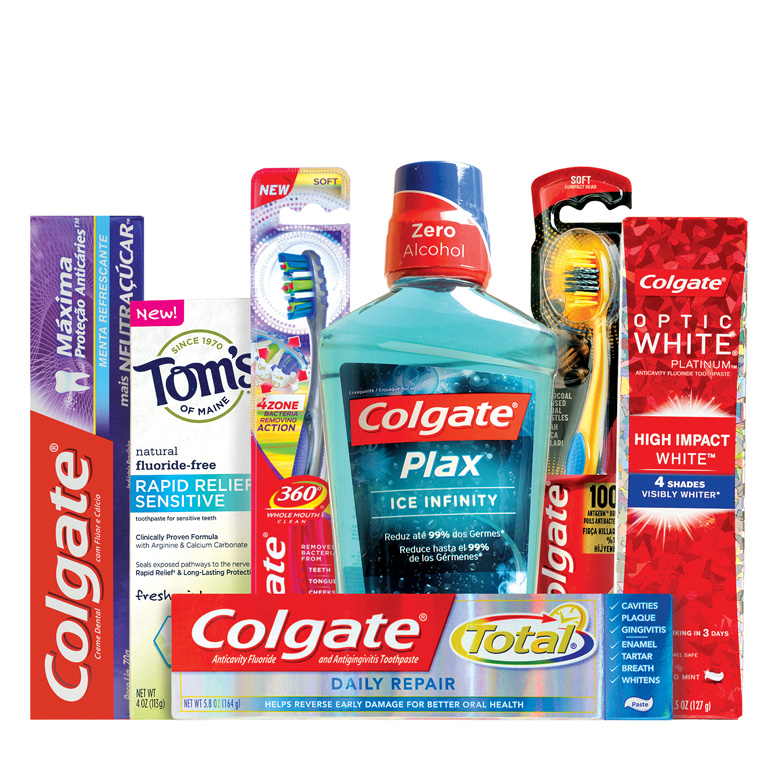Most Reliable Car Brands: Your Ultimate Guide to Automotive Dependability
Most Reliable Car Brands: Your Ultimate Guide to Automotive Dependability cars.truckstrend.com
In the complex world of automotive choices, one factor consistently rises to the top of every buyer’s priority list: reliability. Car reliability isn’t merely about a vehicle starting every morning; it encompasses a wide spectrum of attributes including longevity, consistent performance, minimal breakdowns, and low repair costs over its lifespan. For most consumers, a reliable car translates to peace of mind, fewer unexpected expenses, enhanced safety, and often, better resale value. Understanding which car brands consistently deliver on this promise can save you significant time, money, and stress in the long run.
This comprehensive guide delves into the essence of car reliability, identifies the brands that have built a stellar reputation for dependability, and provides practical advice to help you make an informed decision when purchasing your next vehicle.
Most Reliable Car Brands: Your Ultimate Guide to Automotive Dependability
Understanding Car Reliability: What Does It Mean?
Before naming names, it’s crucial to define what "reliability" truly means in the automotive context. It’s more than just a car not breaking down. A truly reliable vehicle offers:
- Longevity: It’s built to last for many years and high mileage.
- Fewer Repairs: It requires infrequent and minor repairs outside of routine maintenance.
- Consistent Performance: It performs as expected, without sudden drops in efficiency or power.
- Low Maintenance Costs: Parts are reasonably priced, and specialized labor is not excessively required.
- High Quality Components: Parts are well-engineered and durable, resisting premature wear.
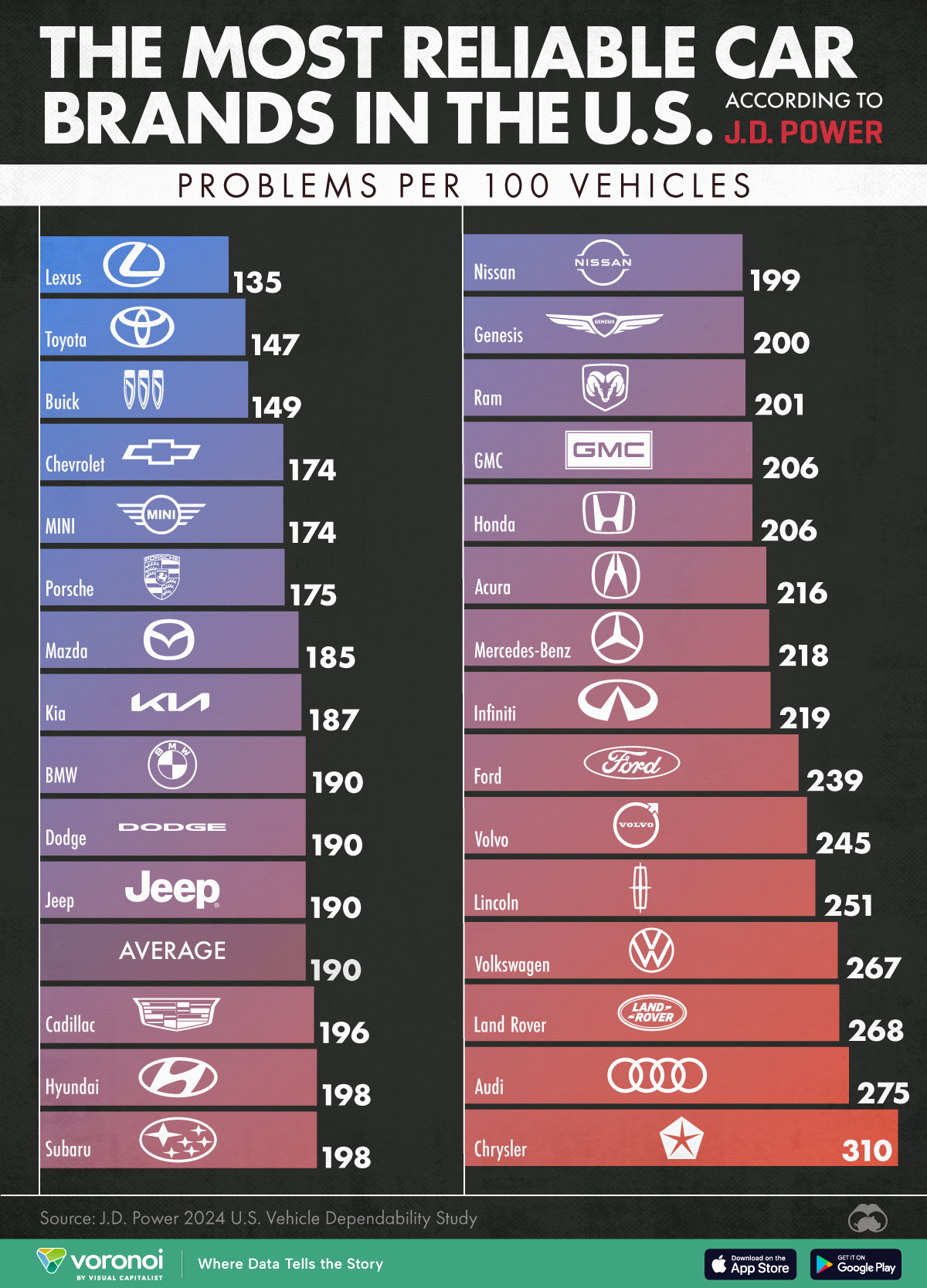
Reliability is typically measured through various metrics, including:
- Owner Surveys: Organizations like J.D. Power and Consumer Reports gather data directly from car owners about problems experienced within a certain period (e.g., the first three years of ownership).
- Repair Data: Companies like RepairPal compile data on average repair frequency, cost, and severity.
- Recalls and Service Bulletins: The number and nature of recalls can indicate underlying design or manufacturing issues.
- Expert Reviews: Automotive journalists and mechanics often provide insights based on extensive experience.
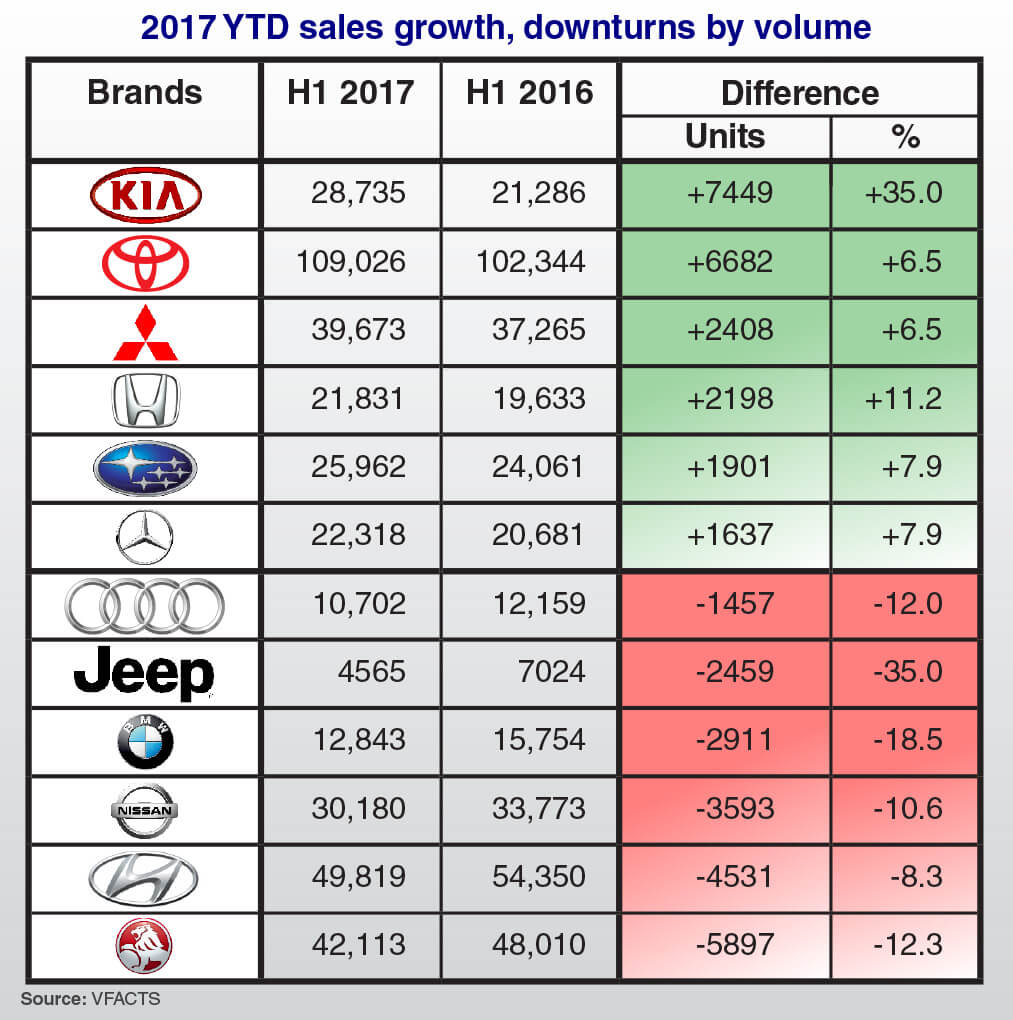
Factors influencing a car’s reliability include manufacturing quality, the complexity of its technology, the materials used, and even how well the owner maintains the vehicle.
The Pillars of Durability: Top Contenders for Reliability
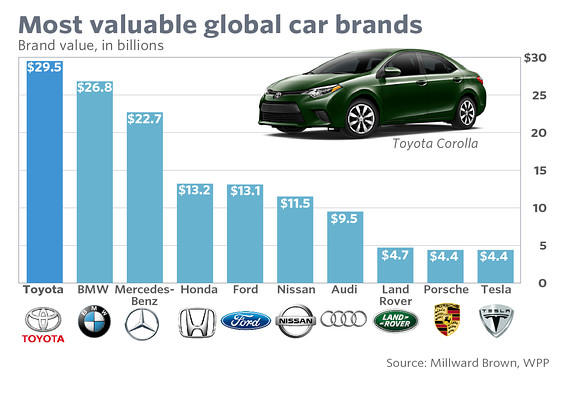
Based on consistent data from reputable sources like J.D. Power, Consumer Reports, and RepairPal, several brands consistently rank at the top for reliability. While rankings can fluctuate slightly year by year, the core group of dependable brands remains largely consistent.
1. Toyota
Toyota is almost synonymous with reliability. For decades, the Japanese automaker has topped reliability charts globally. Their reputation is built on:
- Conservative Engineering: Toyota often refines proven technologies rather than rushing new, untested ones to market.
- Quality Control: Rigorous manufacturing processes ensure high build quality.
- Durability: Vehicles like the Camry, Corolla, and RAV4 are renowned for lasting hundreds of thousands of miles with proper maintenance.
- Hybrid Prowess: Their pioneering work in hybrid technology (e.g., Prius) has proven remarkably reliable.
2. Lexus
As Toyota’s luxury division, Lexus inherits much of its parent company’s reliability DNA. Lexus vehicles consistently rank at the very top of reliability surveys, often surpassing even Toyota.
- Exceptional Build Quality: Higher-grade materials and meticulous assembly contribute to fewer issues.
- Refined Components: While sharing platforms, Lexus often uses more robust or refined versions of Toyota components.
- Customer Service: Lexus dealerships are known for outstanding service, further enhancing the ownership experience.
3. Honda
Honda is another Japanese giant that has long been celebrated for its engineering excellence and reliability. Known for efficient engines and thoughtful design, Honda vehicles are a popular choice for their balance of performance, practicality, and dependability.
- Robust Engines: Honda’s VTEC engines are known for their longevity and efficiency.
- Balanced Design: Models like the Civic, Accord, and CR-V offer a great blend of functionality and driving enjoyment with minimal fuss.
- Strong Resale Value: A testament to their reliability and popularity.
4. Mazda
Mazda has made significant strides in reliability in recent years, shedding its earlier reputation for rust issues and embracing a premium feel with robust engineering. Their Skyactiv technology has been a game-changer, improving both fuel efficiency and dependability.
- Engineering Focus: Mazda emphasizes driving dynamics without compromising on quality.
- Simpler Designs: While technologically advanced, Mazda’s systems often avoid excessive complexity, reducing potential failure points.
- Improved Build Quality: Their current lineup feels more premium and well-built.
5. Subaru
Subaru has carved out a niche for itself with its standard symmetrical all-wheel-drive system and Boxer engines. While historically having some specific issues (like head gaskets on older models), modern Subarus have significantly improved their reliability standing, particularly the Forester and Outback.
- All-Wheel Drive Reliability: Their AWD system is robust and dependable.
- Safety Focus: Often leading in safety ratings, which indirectly speaks to structural integrity.
- Loyal Fanbase: Owners often praise their vehicles’ ability to handle diverse conditions.
6. Kia & Hyundai
The South Korean sister brands, Kia and Hyundai, have seen a remarkable transformation over the past two decades. Once considered budget options, they now compete directly with established brands on quality, design, and, crucially, reliability. Their aggressive warranties often underscore their confidence in their products.
- Rapid Improvement: Consistent investment in R&D and manufacturing quality.
- Generous Warranties: Their 10-year/100,000-mile powertrain warranty (in the US) provides significant peace of mind.
- Value Proposition: Offering a lot of features and technology for the price point, coupled with increasing reliability.
Brands with Nuanced Reliability (Luxury & Domestic)
While the brands above consistently lead, reliability can be more nuanced for others:
- German Luxury (BMW, Audi, Mercedes-Benz): These brands often score well in initial quality surveys, but long-term reliability can be more variable, and repairs, when needed, are significantly more expensive due to complex engineering and specialized parts. They are reliable for performance, but potentially costly to maintain.
- American Brands (Ford, Chevrolet, Ram): Reliability can vary widely by model. Trucks and some SUVs often perform well, but sedans and early adopters of new technology can be hit-or-miss. They have made strides, but consistency across the entire lineup can be a challenge compared to the top Japanese brands.
Beyond the Brand: Factors Influencing Individual Car Reliability
While brand reputation is a strong indicator, it’s not the only factor determining a car’s long-term dependability.
- Model Specificity: Within a reliable brand, some models are more reliable than others. A newly introduced model with cutting-edge technology might have more initial quirks than a long-standing, well-refined model. Always research specific models.
- Maintenance & Care: Even the most reliable car will suffer if neglected. Regular oil changes, fluid checks, tire rotations, and addressing minor issues promptly are crucial. Driving habits (aggressive acceleration/braking vs. smooth driving) also play a role.
- Technological Complexity: Generally, the more complex a vehicle’s systems (e.g., advanced infotainment, complex hybrid powertrains, intricate suspension), the more potential points of failure exist.
- Age & Mileage: All mechanical components wear out over time. A car with high mileage, even from a reliable brand, will likely require more attention than a newer one.
- Recalls & Service Bulletins: While recalls indicate a problem, a brand that promptly and effectively addresses issues through recalls or service bulletins can still be considered reliable in its responsiveness.
Practical Advice for Choosing a Reliable Car
- Do Your Research: Consult multiple independent reliability ratings (J.D. Power Vehicle Dependability Study, Consumer Reports Auto Reliability Survey, RepairPal). Look for consistent high rankings across different sources.
- Focus on Specific Models: Don’t just pick a brand; pinpoint the specific model and even the model year you’re interested in, as reliability can vary.
- Consider Your Needs: A reliable city commuter might be different from a reliable heavy-duty truck. Match the vehicle’s design to its intended use.
- Check Warranty Coverage: A robust warranty indicates the manufacturer’s confidence in their product.
- Assess Parts Availability & Repair Costs: Even reliable cars need maintenance. Research the typical cost of parts and labor for the models you’re considering. Foreign brands often have more expensive parts.
- Read Owner Reviews: Real-world experiences can highlight common annoyances or recurring issues not always captured in aggregated data.
- Get a Pre-Purchase Inspection (for Used Cars): A qualified mechanic can spot potential problems before you buy, even on a supposedly reliable model.
Challenges and Considerations
- New Technologies: The automotive landscape is rapidly evolving with electric vehicles (EVs), advanced driver-assistance systems (ADAS), and increasingly complex infotainment. While exciting, newer technologies can sometimes introduce unforeseen reliability challenges until they mature.
- Global Supply Chains: Disruptions in supply chains can affect parts availability for repairs, regardless of a brand’s inherent reliability.
- Defining "Reliable" for You: For some, reliability means never breaking down. For others, it means low maintenance costs even if minor issues occur. Align your definition with the vehicle’s profile.
- The Cost-Reliability Trade-off: While often worth it, highly reliable vehicles might have a higher initial purchase price. However, this premium is often offset by lower running costs and higher resale values.
Value Proposition of Reliability: A Comparative Look
Understanding the "price" of reliability isn’t about a direct dollar figure, but rather the investment and long-term financial implications. The table below provides a conceptual look at how different brands’ reliability typically translates into long-term value and associated costs.
| Car Brand Category | Typical Reliability Standing | Average Annual Repair Cost (Conceptual) | Key Value Proposition | Notes |
|---|---|---|---|---|
| Top Tier (Toyota, Lexus) | Excellent / Consistently Highest | Low ($400 – $600) | Peace of mind, minimal unexpected costs, high resale value, long lifespan. | Often higher initial purchase price, but significant long-term savings. |
| High Tier (Honda, Mazda, Subaru) | Very Good / Strong Contenders | Medium-Low ($450 – $650) | Balanced reliability, good driving dynamics, strong resale. | Excellent balance of initial cost, features, and long-term dependability. |
| Improving Tier (Kia, Hyundai) | Good to Very Good / Rapidly Improving | Medium ($500 – $700) | Excellent warranty, good value for money, feature-rich. | Significant strides in quality; warranty provides strong reassurance. |
| Niche/Luxury (BMW, Audi, Mercedes-Benz) | Good (Initial Quality) / Variable (Long-term) | High ($800 – $1200+) | Performance, prestige, advanced technology. | Repairs can be complex and very expensive; focus is on driving experience over raw dependability metrics. |
| Domestic Volume (Ford, Chevrolet, Ram) | Good to Mixed / Model-Dependent | Medium-High ($600 – $900) | Wide range of models, strong truck/SUV offerings, parts availability. | Reliability can vary significantly by specific model; research is crucial. |
Note: Average annual repair costs are conceptual estimates based on general industry data and can vary widely based on model, age, mileage, and specific repairs needed. They are provided to illustrate comparative cost implications.
Frequently Asked Questions (FAQ)
Q1: Which car brand is the most reliable overall?
A1: While there’s a slight fluctuation year to year, Toyota and its luxury arm, Lexus, consistently rank as the most reliable car brands globally according to major independent studies.
Q2: Are luxury cars reliable?
A2: Yes, many luxury brands (like Lexus, Acura, Genesis) are highly reliable. However, for European luxury brands (like BMW, Audi, Mercedes-Benz), while they might have good initial quality, their long-term repair costs can be significantly higher due to complex engineering and expensive parts, even if breakdowns are infrequent.
Q3: Does mileage affect reliability?
A3: Absolutely. As a car accumulates more miles, components naturally wear out, leading to an increased likelihood of repairs. Regular maintenance is crucial to extending the reliable life of a high-mileage vehicle.
Q4: Is it worth paying more for a reliable car?
A4: Often, yes. While a more reliable car might have a higher initial purchase price, this premium is frequently offset by lower long-term ownership costs (fewer repairs, lower maintenance, better fuel economy) and higher resale value. It also provides invaluable peace of mind.
Q5: How often should I service my car to maintain reliability?
A5: You should always follow the manufacturer’s recommended service schedule outlined in your owner’s manual. This typically includes regular oil changes, tire rotations, fluid checks, and scheduled inspections, which are critical for maintaining a car’s long-term reliability.
Conclusion
Choosing a reliable car brand is one of the smartest financial and practical decisions you can make as a consumer. Brands like Toyota, Lexus, Honda, and Mazda have consistently proven their commitment to durability and quality, offering vehicles that stand the test of time and miles. However, true reliability is a partnership between the manufacturer’s engineering and the owner’s commitment to proper maintenance.
By conducting thorough research, understanding the specific models that excel, and adhering to a disciplined maintenance schedule, you can ensure that your vehicle provides years of dependable service, saving you from unexpected headaches and expenses, and ultimately enhancing your driving experience. Investing in reliability is an investment in your peace of mind and your financial future.
